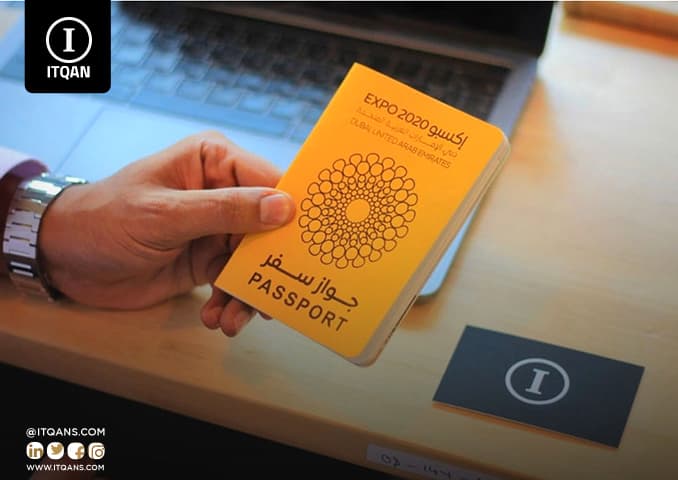Dubai is one of the most prominent destinations for establishing offshore companies in Dubai, thanks to its distinguished economic environment and leading business facilities. Offshore companies, also known as non-resident companies, are an attractive option for international investors wishing to take advantage of the legal and financial advantages that the UAE offers. Establishing offshore companies in Dubai is not only limited to providing a suitable business environment, but also provides a set of incentives that make it the ideal destination for international companies.
Dubai is distinguished by the presence of a group of free zones that provide great facilities for establishing offshore companies , where investors can establish their companies with full ownership without the need for a local partner, and benefit from an attractive tax system that does not impose taxes on companies or individuals. In addition, Dubai provides advanced infrastructure and integrated logistics services, facilitating expansion and innovation.
Establishing an offshore company in Dubai allows investors to access a wide market of business and investment opportunities in the Middle East and the world, thanks to the city’s strategic location as a bridge linking East and West. The simplified procedures for establishing companies and customs and tax exemptions make Dubai a preferred destination for establishing offshore companies. In this article, we will review the basic steps for establishing an offshore company in Dubai, review the benefits and advantages it offers, and how to take advantage of them to achieve your global business goals.

جدول المحتوى
ToggleWhat are offshore companies?
Many commercial companies operate in countries other than those to which they belong or in which they established their business as a country of nationality, and the trend for these foreign businesses is often due to the investment incentives offered by those countries, including low taxes and packages of facilities and aid they provide.
If we take the literal translation term, what is meant by Offshore Company is (far coast), or outside the borders, or beyond the seas, all of which mean outside the borders of the state. Offshore companies are companies registered according to the law of the state from which it carries out its activity and in which the registrar of the company resides.
They are also legal commercial entities or a group of companies that participate in providing and manufacturing commercial services outside the borders of their countries. Companies that invest in the fields of mining, oil fields, and gas extraction fields in the distant seas of their countries may fall under this name.
Characteristics of offshore companies
Offshore companies in Dubai have a set of characteristics that make them an attractive option for investors from all over the world. Here are the most prominent features:
- Full Foreign Ownership: Foreign investors can establish offshore companies in Dubai with full ownership without the need for a local partner, providing them with full control of the company.
- Tax breaks: Dubai offers an attractive tax environment where no taxes are imposed on offshore companies, allowing companies to benefit from full tax breaks on profits and funds transferred abroad.
- Asset Protection: Offshore companies protect their assets from legal claims and debts, thanks to strict protection laws that contribute to preserving the personal assets of investors.
Simplified and fast registration procedures: Offshore companies in Dubai enjoy simplified and fast registration and incorporation procedures, which reduces the time and effort required to start business. - Confidentiality of information: Dubai provides a high level of confidentiality for offshore companies, as it does not require revealing the identity of shareholders and directors, which enhances the protection of personal and commercial information.
- Possibility of opening international bank accounts: Offshore companies can open international bank accounts, which facilitates the management of funds and financial transactions across borders.
- Advanced business environment: Dubai provides modern infrastructure and advanced facilities that include offices, warehouses, and business centers, which supports the growth of offshore companies and helps them achieve their business goals.
- Ease of financial transfers: It allows investors to transfer funds and profits outside the Emirates without restrictions, which enhances the flexibility of managing companies’ financial affairs.
- Freedom to manage the business: Offshore companies in Dubai offer freedom in managing the business, including making strategic decisions and determining growth and expansion strategies.
- Legal and regulatory advantages: Offshore companies in Dubai are subject to flexible laws and regulations that support business growth and facilitate operations, while providing legal protection and compliance with regulatory frameworks.
Validity of offshore companies in Dubai
The validity of offshore companies in Dubai relates to a set of laws and regulations that determine how they operate, which include permitted business purposes, activities that the company can undertake, and other legal requirements. Here are the most important aspects of the validity of offshore companies in Dubai :
- Permitted business activities: Offshore companies in Dubai are usually limited in the scope of their business activities, with companies that focus on international business such as asset management, investments, foreign trade, and advisory services being preferred. Some commercial activities may not be permitted, such as providing financial or local trading services directly in the UAE.
- Compliance with local laws: Although offshore companies enjoy great flexibility in Dubai, they must comply with local and international laws that regulate their activities. It requires adherence to regulatory standards related to tax, anti-money laundering, and compliance with international corporate laws.
- Not allowing local commercial activities: Offshore companies cannot conduct business directly within the Emirates, such as selling products or providing services to local customers. Domestic businesses typically require the creation of another type of business entity, such as a limited liability company (LLC).
- Regulatory procedures and reporting: Offshore companies must adhere to specific regulatory procedures, such as submitting periodic reports to regulators in the free zone in which they are located. These reports may include financial data, reports on business activities, and other company-related updates.
- Re-registration and renewal: Offshore companies need to renew their registration regularly according to the laws of the free zone. This requires updating basic company information and submitting official documents to confirm its continued compliance with laws and regulations.
- Record Keeping: The law requires offshore companies to keep accurate records of their business, including financial accounts, minutes of meetings, and legal documents. These records must be available for inspection upon request by the appropriate authorities.
- Adherence to international standards: Offshore companies must adhere to international standards related to financial disclosure, anti-money laundering, and compliance with global financial laws, especially if they operate in multiple markets.
- Confidentiality and Data Protection: Although offshore companies in Dubai are provided with a high level of confidentiality, they must adhere to laws related to data protection and maintain the confidentiality of business and personal information.
Documents required to establish offshore companies in Dubai
Establishing an offshore company requires submitting a range of essential documents to ensure compliance with legal and regulatory requirements in your chosen jurisdiction. Below is a list of common documents required to establish an offshore company:
- Incorporation application form: Complete the application form for establishing the company, which can be obtained from the regulatory body or through the incorporation agent.
- Passports: Color copies of the passports of all major shareholders and directors. Passports must be current and valid.
- Proof of Address: Documents to prove the residence address of shareholders and directors, such as utility bills or a bank statement.
- CVs: CVs of key shareholders and directors detailing their professional backgrounds and previous experiences.
- Criminal Record Certificate: In some jurisdictions, a criminal record certificate may be required for shareholders and directors as proof of good reputation.
- Business Plan: A document detailing the business activity, goals, and business strategy. This document may be required in some jurisdictions.
- Memorandum of Association and Articles of Association: Legal documents that include details of a company’s establishment, such as the Memorandum of Association and Articles of Association that define the internal structure of the company.
- Registered Office Contract: A contract stating the registered address of the company which must be in the jurisdiction in which the company is registered.
- Legal powers of attorney: Legal powers of attorney if there are agents or legal representatives dealing on behalf of shareholders or managers.
- Names of candidates for the Administrative Council: A list of the names of persons who will be appointed as directors or members of the company’s Administrative Council.
- Financial Proofs: Proof of the existence of the capital required to establish the company, which may include bank statements or other financial statements.
- Company Insurance: In some cases, company insurance may be required as part of the incorporation requirements.
- Incorporation fees: Payment of fees related to establishing the company, which includes registration and license fees.

Conditions for establishing offshore companies in Dubai
According to the regulations issued by the Jebel Ali Free Zone Authority regulating the work of offshore companies, when establishing companies, the following regulations were established:
- Any one or more persons may submit a signed application to the Registrar for a certificate of incorporation of an offshore limited liability company.
- An offshore company may be established in order to conduct any lawful business, except for what is contrary to the conditions and specified under the regulations.
- Each offshore company has a management structure and one class of shares (of equal value).
- The company that wants to practice its activity must obtain a license for this purpose from the competent authorities.
- Offshore companies are not entitled to practice banking, insurance, or anything prohibited by the competent authorities from time to time.
- Every company must issue a financial statement that is audited by a certified auditor and filed with the Registrar of Companies.
- The company must have a registered office in Jebel Ali Free Zone and have a legal agent approved by the zone authority.
- Signature of the application by the founders, provided that it states the following:
- The name of the thousand shore company, ending with the word “limited”.
- The address of the registered office of the company and the purpose of its establishment.
- Nature of work.
- The amount of share capital proposed to be registered and divided into shares of a fixed amount.
- Full names of the founder or founders, and persons serving as board members.
- Any other details that the Registrar may request.
In conclusion, establishing offshore companies in Dubai represents an attractive investment option thanks to the dynamic economic environment and unique advantages that this emirate offers. Dubai, with its advanced infrastructure and flexible tax system, provides an ideal platform for offshore companies seeking to capitalize on its strategic location as a global business hub. By offering foreign investors full ownership, asset protection, and comprehensive tax breaks, Dubai allows offshore companies the opportunity to expand and grow in a way that achieves their global business goals.
Offshore companies in Dubai enjoy simplified and quick registration procedures, making the process of entering the market less complicated and expensive. Dubai also provides a high level of confidentiality and protection for commercial and personal information, which enhances the security and stability of companies. However, investors must adhere to relevant local and international laws and ensure compliance with regulatory requirements to ensure their success.
The encouraging environment that Dubai offers, including the ease of opening international bank accounts and flexible business management procedures, makes it an ideal destination for investors looking for new expansion strategies. With increasing demand for global expansion and business innovation, Dubai remains among the leading destinations offering distinct investment opportunities in the field of offshore companies.
The most important frequently asked questions about establishing offshore companies in Dubai
Can an offshore company do business within the UAE?
No, offshore companies cannot conduct direct business within the UAE. It can only conduct international business activities and provide its services across borders.
What are the costs of establishing an offshore company in Dubai?
Costs vary depending on the type of company and free zone chosen, but usually include registration fees, licensing fees, rental costs, and legal fees.
Are there restrictions on the type of activities an offshore company can engage in?
Yes, there are restrictions on the activities that an offshore company can engage in. It is preferable for activities to focus on international trade, investment, and asset management, rather than domestic activities.
What are the management and operating requirements of an offshore company?
Operating an offshore company requires appointing a company director or directors, submitting annual reports, and complying with the legal and legislative requirements imposed by the free zone.
Does an offshore company need a physical office in Dubai?
Yes, a physical office in Dubai is usually required as part of the company registration requirements, even if the business activities are conducted across borders.


















